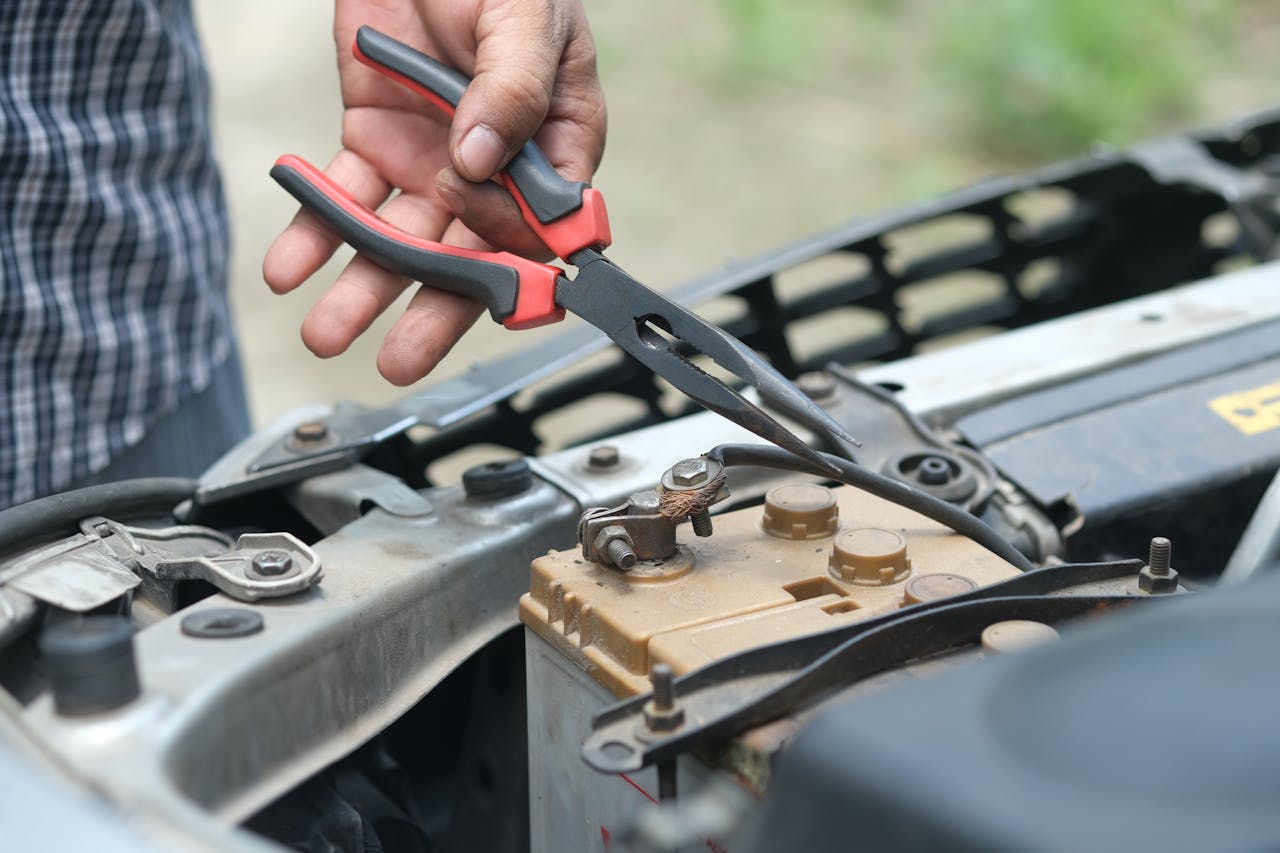The evolution of car technology has resulted in vehicles becoming more electronically dependent. Over the last few decades, the traditional mechanical systems in vehicles have progressively been supplemented, and in some cases replaced, by advanced electrical systems. Today, cars have onboard computers, sensors, wiring harnesses, and other complex electrical components that perform essential functions like engine control, fuel injection, transmission shifting, infotainment, and more. These systems need regular diagnostics to ensure smooth operation and to prevent potentially costly breakdowns.
Electrical diagnostics are tests and procedures that help identify faults or weaknesses within a vehicle’s electrical systems. By running these checks, you can catch issues early, before they escalate into significant, expensive repairs. Here are seven reasons why electrical diagnostics should be a critical part of your car maintenance routine:
1. Preventive Care and Early Detection
Electrical diagnostics should be a regular part of car maintenance because they serve as a form of preventive care. Every car, particularly newer models, relies heavily on electrical systems for a variety of functions. The electrical system powers everything from simple tasks, like running the air conditioning, to more complex processes, such as starting the car and monitoring engine performance.
When these systems start to malfunction, the issues may initially seem minor but could lead to much bigger problems over time. Without routine checks, you may not realize there’s a problem until it becomes costly to fix. A malfunctioning alternator, for example, might go unnoticed during everyday driving, but over time, it could lead to a breakdown, leaving you stranded on the road.
Why It’s Important:
- Early detection helps you identify potential issues before they become serious, allowing you to avoid breakdowns and expensive repairs.
- Electrical diagnostics check every system that could potentially cause a failure or lead to a more significant mechanical issue.
2. Ensures Safety
Safety is arguably the most critical reason to include electrical diagnostics in your regular car maintenance. Modern vehicles have numerous safety features, many of which are powered by electrical systems. These include airbags, anti-lock braking systems (ABS), traction control, electronic stability programs (ESP), and collision warning systems.
A fault in any of these systems could seriously compromise the vehicle’s safety. For instance, if your ABS malfunctions, your ability to control the car in emergency braking situations diminishes significantly. The same applies to airbags; a problem in the electrical system could result in airbags failing to deploy in an accident, posing a severe risk to occupants.
Routine diagnostics ensure that these safety systems function as they should.
Why It’s Important:
- Prevents accidents: Faulty electrical components can lead to dangerous situations, especially in the case of brake lights, turn signals, or headlights.
- Airbag and ABS functionality: Diagnostic tools can detect issues that would otherwise be invisible to the driver.
3. Prolongs Vehicle Lifespan
Every vehicle owner aims to keep their car running smoothly for as long as possible. Electrical diagnostics can contribute significantly to this by ensuring that essential components remain in top working condition. Over time, small issues can add stress to other parts of the car, leading to wear and tear that might shorten the vehicle’s lifespan.
For example, a faulty battery may force the alternator to work harder, which in turn could shorten its life. Over time, the chain reaction caused by one faulty electrical component could affect multiple systems in the car.
Why It’s Important:
- Optimizes system performance: Regular diagnostics prevent long-term damage by maintaining the health of the electrical components.
- Prevents wear and tear: Ensures that one failing part does not overwork another, leading to a more extended vehicle lifespan.
4. Reduces Repair Costs
Car repairs can be expensive, especially when they involve critical components like the engine or transmission. Electrical diagnostics help reduce these costs by identifying small problems before they escalate into larger, more costly repairs.
For example, a failing alternator may not be immediately noticeable, but over time it can drain your car’s battery and potentially damage other components. By diagnosing this issue early, you can replace the alternator before it causes more significant problems.
Why It’s Important:
- Prevents major issues: Electrical diagnostics catch minor problems that can turn into larger, more expensive repairs if left unchecked.
- Saves on labor costs: Fixing minor issues detected during a diagnostic test is often quicker and less expensive than waiting for a full system failure.

5. Improves Fuel Efficiency
Electrical diagnostics also play a vital role in maintaining fuel efficiency. A malfunctioning sensor or component can cause the engine to run inefficiently, leading to a drop in fuel economy. Modern vehicles are equipped with sensors and electrical systems that monitor and control everything from air-fuel ratios to the performance of the fuel injectors.
If one of these sensors malfunctions, your engine may consume more fuel than necessary. Regular diagnostics ensure that all components related to fuel consumption work as they should, helping you save money on gas.
Why It’s Important:
- Saves on fuel costs: Regular diagnostics can identify issues that reduce your car’s fuel efficiency.
- Ensures optimal performance: Your vehicle runs more efficiently when the electrical systems are functioning correctly.
6. Maintains Comfort and Convenience Systems
Modern cars come equipped with a host of electrical systems designed to make driving more comfortable and convenient. From climate control to infotainment systems and power-adjustable seats, these features rely on properly functioning electrical systems. When these systems start to fail, it may not pose a safety risk, but it can make your driving experience less enjoyable.
For instance, a malfunctioning climate control system could leave you without heat in the winter or air conditioning in the summer. Similarly, issues with power windows or locks can be inconvenient and potentially unsafe if they fail at the wrong time.
Why It’s Important:
- Enhances comfort: Electrical diagnostics ensure that your car’s comfort features, such as climate control and power seats, work as intended.
- Improves convenience: Ensures all electric-powered convenience features are functioning optimally.
7. Ensures Proper Function of Advanced Systems
As vehicles become more advanced, they rely heavily on a range of sophisticated driver-assistance systems to improve both safety and convenience. Features like lane-keeping assistance, adaptive cruise control, parking sensors, and collision avoidance systems all depend on well-functioning electrical systems.
A malfunction in any of these systems could reduce the effectiveness of these features or disable them altogether, diminishing the overall safety and convenience that modern cars offer. Electrical diagnostics ensure that these systems function correctly, improving both the safety and the overall driving experience.
Why It’s Important:
- Increases safety: Advanced driver-assistance systems, which enhance driving safety, rely on properly functioning electrical systems.
- Maximizes performance: Ensures the car’s high-tech features work as intended, maintaining the overall performance of the vehicle.
Conclusion
In conclusion, regular electrical diagnostics should be a vital part of your car maintenance routine for a variety of compelling reasons. They not only help in identifying problems early on but also ensure the safe operation of the vehicle, maintain its efficiency, and prolong its lifespan. Whether it’s reducing repair costs, improving fuel efficiency, or maintaining comfort and convenience systems, electrical diagnostics provide numerous benefits that contribute to a better overall driving experience.
By integrating electrical diagnostics into your car’s regular maintenance schedule, you’re not just preventing potential issues—you’re enhancing safety, efficiency, and reliability, ensuring that your vehicle serves you well for many years to come.
Are You Looking for Professional Electrical Diagnostics for Cars?
If you’re in search of expert electrical diagnostics for your vehicle with a proven reputation, look no further than autoTECH Blackhawk. Why choose us for your car’s electrical needs? We stand out among independent automotive service providers by building strong relationships with our customers. This approach allows us to customize our services to match your unique vehicle requirements and performance goals.
Whether you’re experiencing electrical issues, need a thorough system check, or want to ensure your car’s electrical components are functioning optimally, our team is here to assist. We take pride in diagnosing and resolving your vehicle’s electrical concerns, ensuring it performs at its best. Additionally, we offer valuable guidance on electrical maintenance and long-term reliability. Plus, we back our work with an industry-leading 3-year/36,000-mile warranty and only use top-quality parts from trusted manufacturers. Reach out to our friendly team today to schedule a convenient and contactless appointment!


